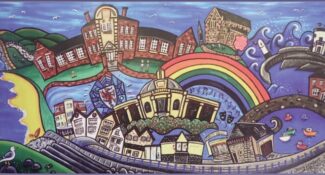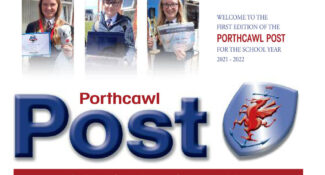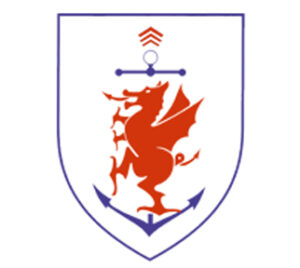Science
Dr G Wellington (Head of Chemistry and Head of the Faculty of Science)
Mr T Hutchison (Head of Biology)
Mr J Morgan (Head of Physics)
IMPORTANT INFORMATION: COVID-19
WEB RESOURCES
- BBC Bitesize: Science (best for general Science at KS3 and good for KS4)
- Chemguide (excellent for GCSE and also very good for AS and A2 Chemistry)
- RSC: Royal Society of Chemistry (videos are excellent and their website has excellent Chemistry material as you would expect)
Studying science will broaden your understanding of the world around you. Science makes a positive impact on people’s lives and in many cases, it saves lives. Scientists use their expertise to develop real solutions to real problems. At Porthcawl you will study the three sciences – biology, chemistry and physics.
Biology covers life and living things in all their forms, from incredibly tiny microbes to giant redwood trees and blue whales. It studies how they survive, move about, feed and interact with their environment.
Chemistry is the study of substances and chemicals, what they are made of and how they differ from each other in their many properties and features. Chemists also look at how these substances change when they react together.
Physics deals with matter, energy, movement and the structure of the Universe. It is also concerned with machinery and technology.
For up to date information on KS4 and 5 courses, please see the Options Booklets
-
Key Stage 3
Year 7
Term 1 – Biology
Practical skills – safety, apparatus, measuring time and length, results tables and graphs
Project based on whole school theme ‘Our World’Term 1 – Chemistry
Chemistry skills
Rockets project – combustionTerm 1 – Physics
Science Skills
Earth in spaceTerm 2 – Biology
Project based on whole school theme ‘Our World’
Cells, tissues and organs – Basic cell structure
Use of a microscope, specialised cells, tissues and organs of humans and plantsTerm 2 – Chemistry
Rockets project – neutralisation
Term 2 – Physics
Rocket Project
Term 3 – Biology
Project based on whole school theme ‘Our World’
Cells, tissues and organs – Basic cell structure
Use of a microscope, specialised cells, tissues and organs of humans and plantsTerm 3 – Chemistry
Metals
Term 3 – Physics
Magnetism
Year 8
Term 1 – Biology
Reproduction in plants and animals – plant reproduction including the structure of a flower, human reproduction including the structure and function of the male and female reproductive system, sperm and egg, development of a baby
Microbes and disease – looking at yeast and bread mould, growing bacteria on agar jelly, compostTerm 1 – Chemistry
States of matter
Term 1 – Physics
Motion
Term 2 – Biology
Microbes and disease – topic continued from term 1
Cholera – a project looking at various aspects of health and diseaseTerm 2 – Chemistry
Rates of reaction
Term 2 – Physics
Forces
Term 3 – Biology
Drugs – studying the effects of legal and illegal drugs
Term 3 – Chemistry
Separating techniques
Term 3 – Physics
Energy
Year 9
Term 1 – Biology
Breathing – label and give functions of the respiratory system, look at the differences in the air we breathe in and out. A practical enquiry into the effect of exercise on breathing and/or heart rate
RespirationTerm 1 – Chemistry
GCSE first unit – topic 1 (Nature of substances and chemical reactions)
Term 1 – Physics
GCSE Topic 1 – Waves Part 1
Term 2 – Biology
Food and diet – look at nutrients and their role in our body
Term 2 – Chemistry
GCSE first unit – topic 2 (Atomic structure and the Periodic Table)
Term 2 – Physics
GCSE Topic 2 – Electricity Part 1
Term 3 – Biology
Start the GCSE Science course. We always aim to complete at least one topic in the Summer term
Term 3 – Chemistry
GCSE first unit – topic 3 (Water)
Term 3 – Physics
Logic gates
Ways in which parents can help:
- Look over work in the booklets.
- Support pupils with homework.
- Watching TV programmes, reading magazines, newspaper articles relating to science.
- Research tasks – help by searching the Internet for relevant sites for research e.g. Famous scientists, everyday acids and alkalis, separating techniques in everyday life e.g. desalination, different types of filter.
- Help when exploring different types of fuel, acids and alkalis found at home.
- General help and support – keep an eye on homework marks (in booklets) and test marks. Help explain to pupils how to access higher levels.
- Pupils should be trying to improve their levels in Science. Parents can help to explain to pupils how they can achieve the next level from the booklets and help sheets that are provided by staff. This reinforces the message given by staff.
- Research into common elements and compounds from the Internet.
- With research tasks that appear throughout the topics, such as famous scientists, uses of magnets, energy loss of a table tennis ball, the hydrogen powered car, the uses of and workings of snow shoes, sky watch, designing a space station, building a planisphere, designing ear defenders, fast and slow.
- Parents can help with the research into the Archimedes claw and catapult/trebuchet. Applications for Eisteddfod.
- Research into common elements and compounds from the Internet.
Useful websites:
Useful books/magazines/publications:
- Scientific magazines such as New Scientist
- KS3 revision guides (e.g. Letts, CGP) will contain some useful summaries
- Keeping abreast of the newspapers when science features in the front pages e.g. when the speed of light was broken in CERN with a neutrino or Bloodhound SSC updates and ISS updates.




